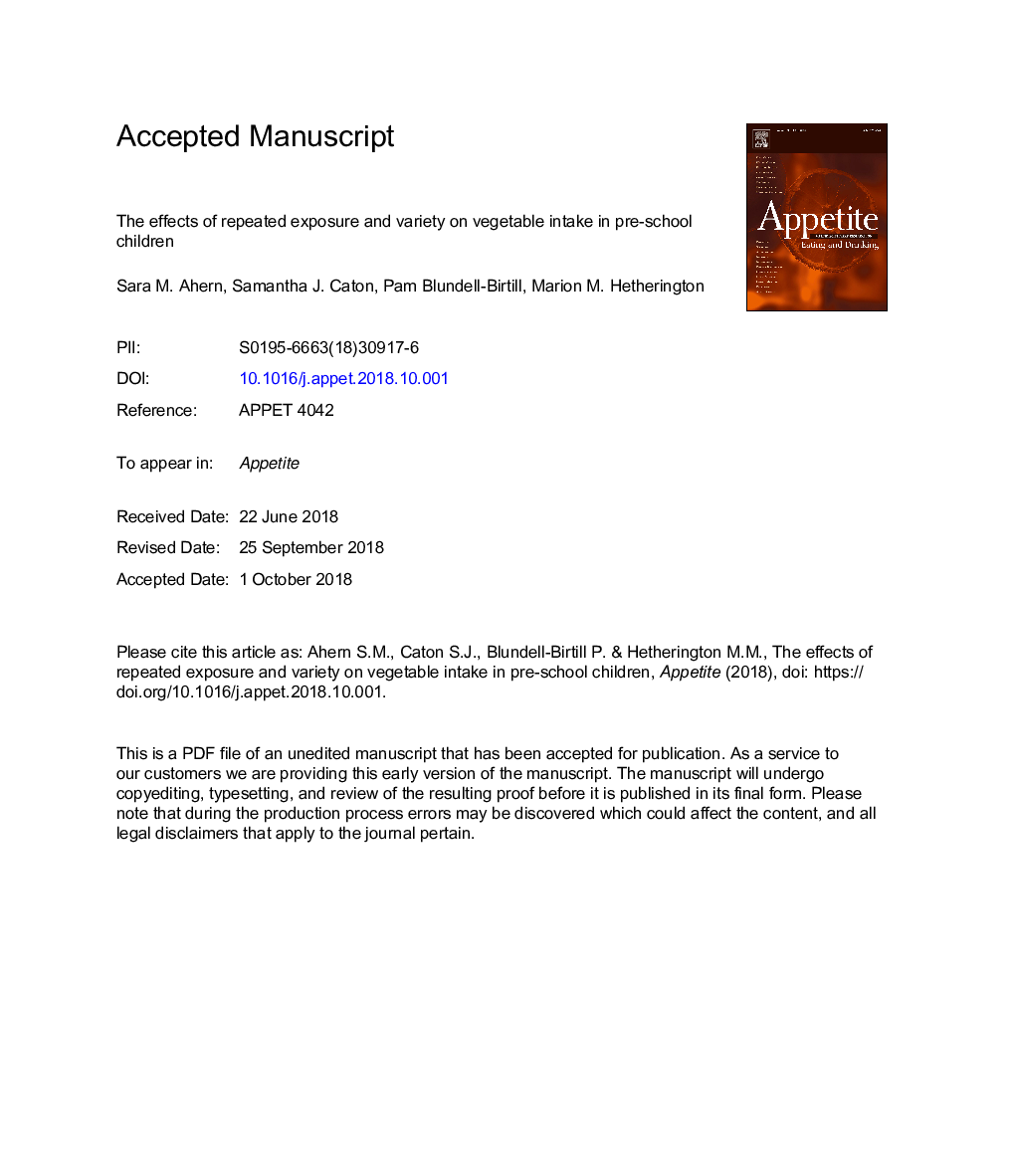| Article ID | Journal | Published Year | Pages | File Type |
|---|---|---|---|---|
| 11020570 | Appetite | 2019 | 28 Pages |
Abstract
Children's vegetable consumption in the UK remains lower than national recommendations, presenting potential long-term health risks. It is known that repeated exposure promotes intake of novel vegetables and that offering children variety and choice can also encourage intake. The current study aimed to compare the impact of offering variety over simple repeated exposure as a strategy for increasing pre-school children's vegetable consumption. Children (Nâ¯=â¯95) aged 24-55 months were recruited through participating nurseries and assigned to receive repeated exposure (RE) to a single vegetable snack or a mixed snack consisting of five different vegetables (variety: V). A minimum of 5 (maximum 6) exposures were given for both RE and V conditions. Pre and post-intervention intake measures of both the RE and V snacks were taken for each child. Follow up measures took place 1 month post-intervention (nâ¯=â¯40). Vegetable intake increased significantly from pre to post intervention for snacks congruent to the condition to which children were assigned. Magnitude of change was smaller for the variety condition. Follow up data revealed that snack intake remained significantly higher than baseline 1 month post-intervention (pâ¯<â¯0.001). In agreement with previous work this study confirmed that repeated exposure was effective in promoting children's vegetable intake but there was no additional benefit of variety in this context. It may be that for moderately familiar vegetables, serving them alone encourages intake and for this age group, avoids contamination fears or effects of neophobia.
Related Topics
Life Sciences
Agricultural and Biological Sciences
Food Science
Authors
Sara M. Ahern, Samantha J. Caton, Pam Blundell-Birtill, Marion M. Hetherington,
